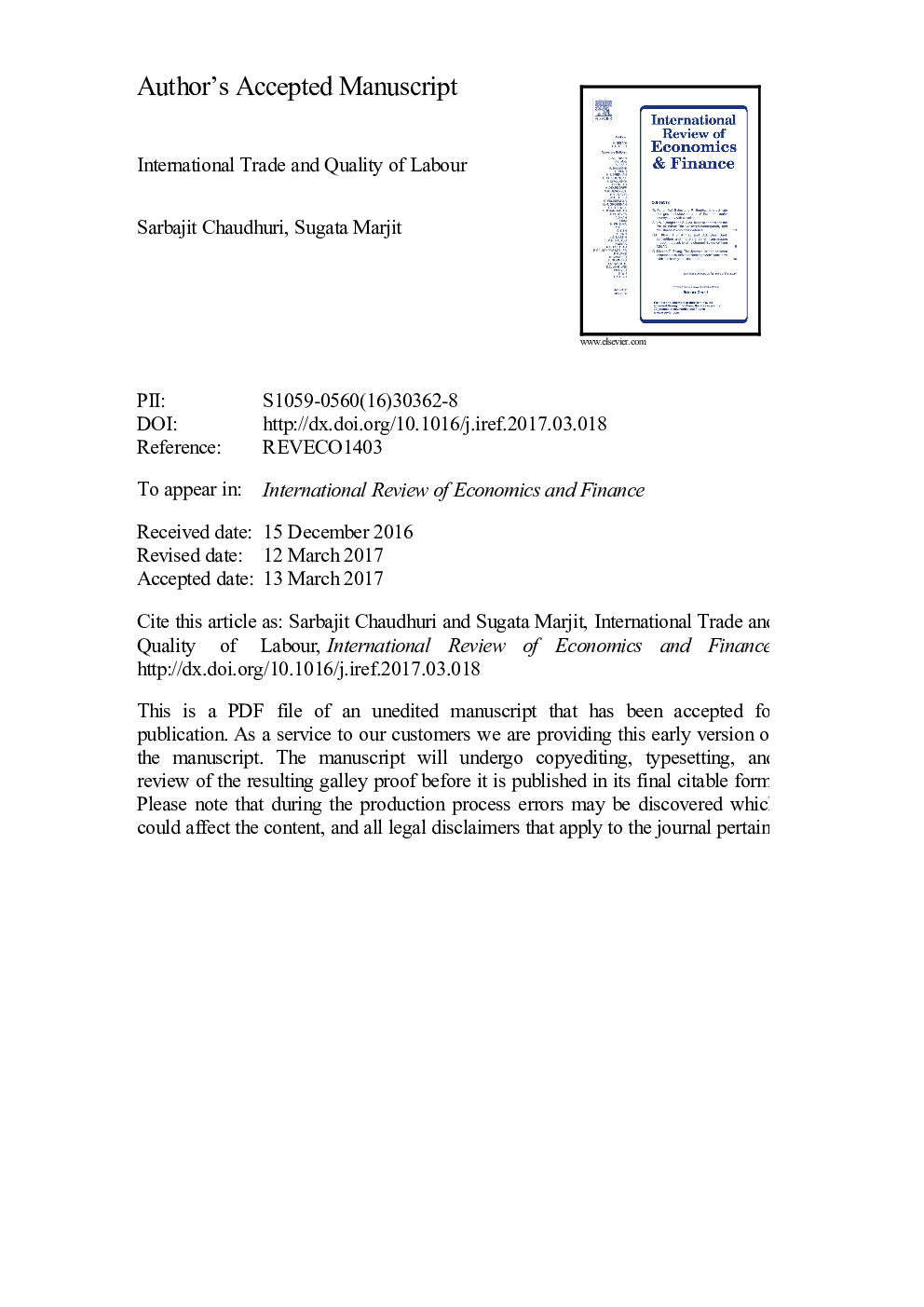| Article ID | Journal | Published Year | Pages | File Type |
|---|---|---|---|---|
| 5083108 | International Review of Economics & Finance | 2017 | 39 Pages |
Abstract
This paper argues that better prospect for exports induces firms to distinguish between high-quality workers and low-quality workers by providing an incentive wage. Thus, trade leads to an identification of labour quality, widening the wage gap between the high-quality (skilled) and the low-quality (unskilled) workers. The results are derived in a model containing both moral hazard and adverse selection problems. We provide a different argument from the ones as available in the existing literature including the standard Shapiro and Stiglitz (1984) shirking model. Finally, the results of the paper have some important policy implications.
Keywords
Related Topics
Social Sciences and Humanities
Economics, Econometrics and Finance
Economics and Econometrics
Authors
Sarbajit Chaudhuri, Sugata Marjit,
